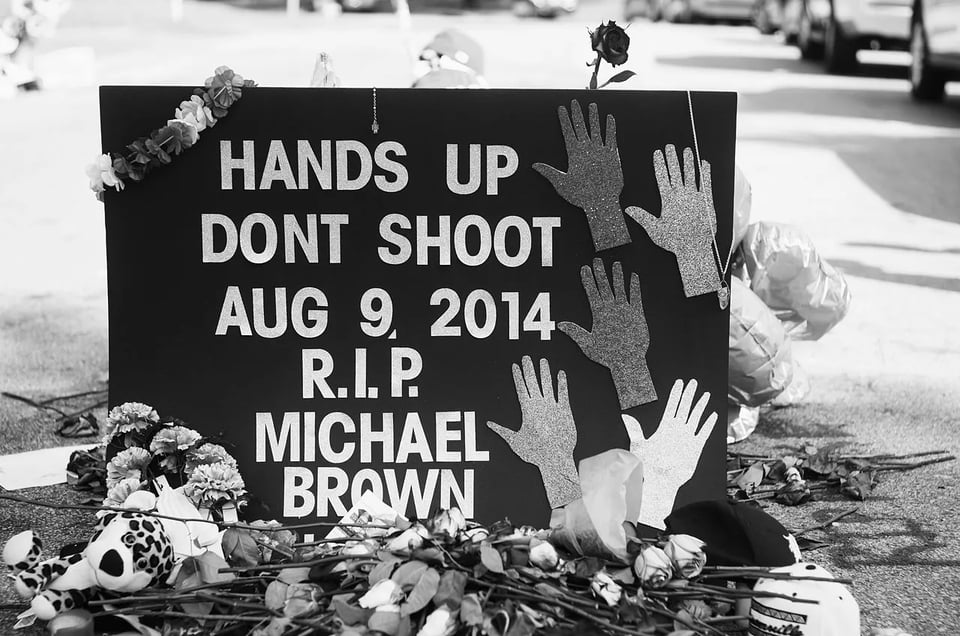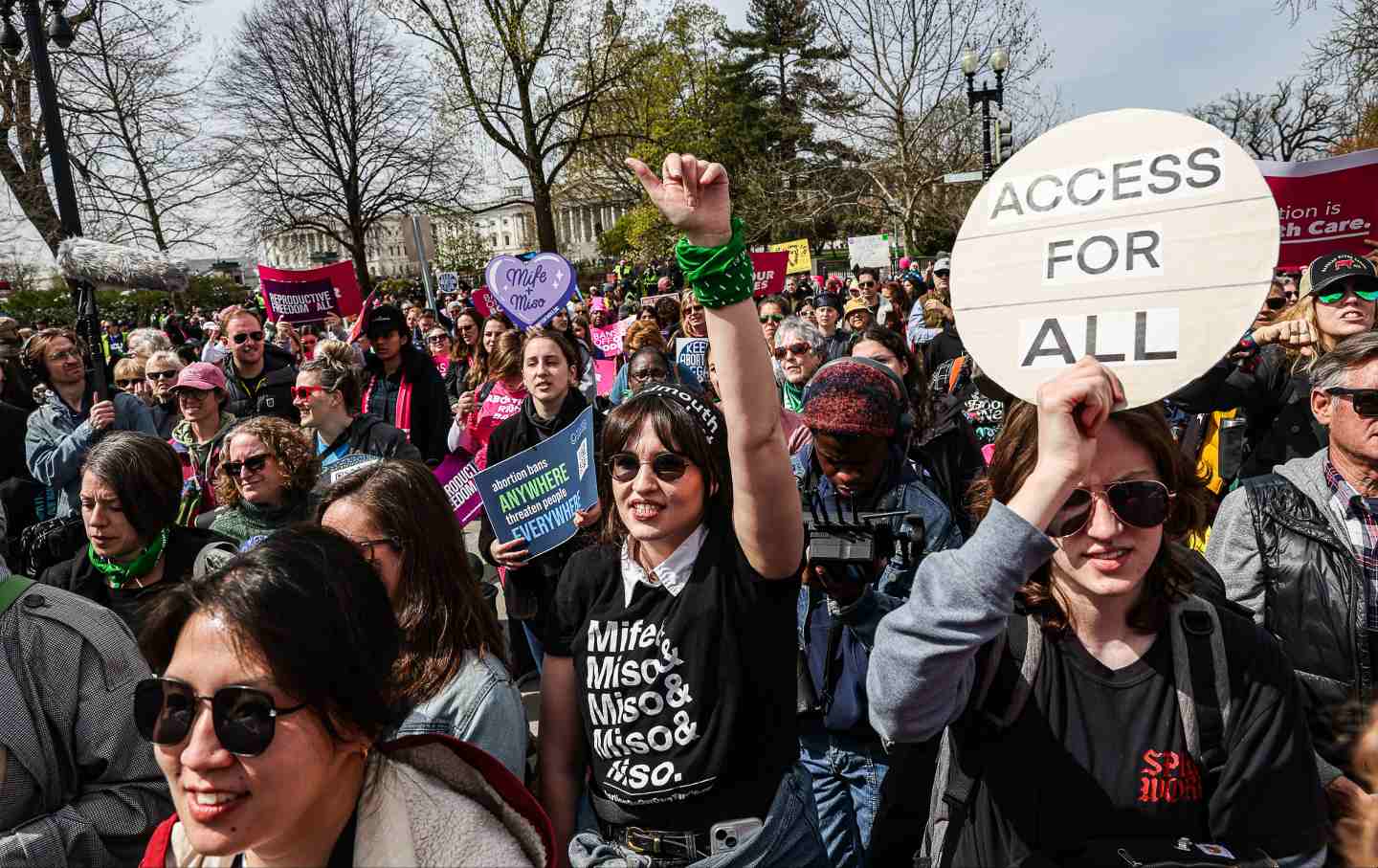The Demand is Still #Defund
Ten years ago I was reading about protests happening in Ferguson as my plane touched down in Oakland, California. Mike Brown, an unarmed 18-year-old Black teen had been shot and killed by a police officer and his body was left in the streets for four hours. I remember feeling sad and angry and helpless as I scrolled through images of militarized police suppressing protestors. Looking for some way to feel useful, my partner and I attended a small protest happening in a plaza named after Oscar Grant, another Black man killed by police violence. It one of was my first Black Lives Matter protests and in many ways, like countless other people, my commitment to racial and economic justice was forged in the events of Ferguson.
I’ve been thinking a lot about that summer recently as well as the summer we lived through four years ago. Black Lives Matter began in response to George Zimmerman’s acquittal for the murder of Trayvon Martin. But thanks to the brave organizing that happened in Ferguson, 2014 was the year that Black Lives Matter gained new power. 2020 was another pivotal year. Millions of people took to the streets and it was the year when one of the core demands of the Movement for Black Lives, divestment from policing and investment in communities, entered the public discourse in the form of “Defund.”
In the time since, Defund has been maligned and written off. Some have tried to blame the 2022 midterm House losses on Defund. This ignores that midterm elections almost always result in losses for the incumbent parties. In fact the Democrats overperformed expectations for the most part. But also Democratic centrists, many of whom who ran aggressively pro-police campaigns, struggled in the midterms.
Truthfully, the actual demands of the Defund campaign were never seriously engaged with. They were smeared and exaggerated so that Defund was equated with full abolition and abolition conflated with outright anarchy. In reality, Defund makes a simple demand: Reallocate funds from policing to fund social services. In other words we shouldn’t place responsibility for people suffering from homelessness or mental health crises or substance abuse on police. We can put qualified professionals in charge of helping people and as a added benefit those people won’t end up shot.
This reallocated money isn’t just for responding to crises however. By investing in housing, jobs, public health, and education we could be strengthening the social fabric of our communities in a ways that prevent crime.
In 2020, Gallup found 46% of respondents supported reallocating police department funds in this way. I think if pundits and politicians had been willing to engage in good faith discussion of the Defund demands, that number might have grown. Instead Democrats including Barack Obama decided it was better to scold Defund organizers as naive and misguided. While it feels like truly transforming public safety is more out of reach than ever, 2020 succeeded in shifting the conversation about police reform. One underreported victory of 2020 is that programs that send unarmed responders have grown in recent years. And while they are drastically underfunded compared to policing and prisons, initial results are positive.
And yet many would like to treat the Defund debate as done. The defamation and dismissal of Defund comes at a cost. In NYC, we have had to fight Eric Adams’ cuts to education, libraries and other social services for the third year in a row. During a June heat wave, the lack of Sunday library services was acutely felt. Restorative justice is being cut at a time when it needs to be expanded. Homelessness is at a 10-year high. But Adams’ budget once again has set aside plenty of money for police, including a $275 million Cop City. And so the fight to Defund must continue.

In the 10 years since Mike Brown’s death, too many lives were cut short and turned into hashtags. Philando Castile. Alton Sterling. Sandra Bland. Breonna Taylor. George Floyd. Sonya Massey. Countless names that we will never know but who are mourned by their loved ones. We don’t need more evidence that overpolicing kills. Instead we need a collective commitment to say enough is enough. Those of us who are white need to move past our discomfort with language we find unsettling and actually engage with the meaning of the demands.
When I think of the trajectory of Black Lives Matter since 2020, it is easy to feel dejected. We feel very far away from the mass movement moment of that summer and so many promises have gone unfulfilled.
But when I think back to 2014, I’m also reminded that many of my initial experiences participating in Black Lives Matter activism were losses. Mike Brown’s murderer was acquitted. Bill DeBlasio spoke out against police violence and then retreated. Donald Trump’s election was in some ways a repudiation of the Black Lives Matter movement.
But I learned so much through these experiences and more importantly I found a political home. In December 2014, friends brought my partner and I to a protest led by Jews for Racial and Economic Justice (JFREJ) that shut down Broadway in Manhattan. JFREJ has been my community since then and the place where I’ve found belonging and purpose through numerous fights.
In the same way, 2020 was a year that brought countless people into political organizing and those people continue to make a difference on many fronts. I don’t say this in some sort of “Mike Brown’s death wasn’t for nothing” way. Mike Brown should be alive today. Period. But if there’s any sort of solace to take from the his death and the thousands others taken by police violence since, it’s the fact that more and more people are joining the fight for justice each day.
This movement for justice is one way we can honor Mike Brown’s memory. If you haven’t attended a march since 2020 or you’ve never participated in any type of action before, there is a big beautiful movement waiting to welcome you. There are many roles and many fronts in this fight. One of them is Defund. The language we choose to frame this fight may evolve, but the fight remains the same: move money away from death-making systems of injustice and create life-affirming systems of justice in their place.
Other Recent Writing

What Happens Next • Buttondown
A Plan for Resilience That Doesn’t Rely on Biden I can still remember what spring 2020 felt like, and how I realized once and for all who matters in the US...
Other Recommendations for Reading/Listening/Watching
